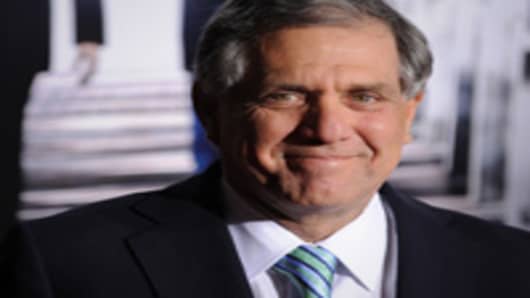Three weeks into a new television season, the usual carnage is becoming apparent, with new shows collapsing and crises appearing all over network prime-time schedules.
Except in one place.
At CBS, a network that unashamedly embraces the supposedly dying notion of being a broadcaster, something close to serenity has settled in. So far, CBS has managed to avoid, on every night, across every hour of prime time, the kind of failure that has visited all of its main competitors.
CBS has always been known for being strong with older viewers, but weak — and often last — with viewers in the category that ABC, NBC, and Fox prize, viewers ages 18 to 49.
Many advertisers pay a premium to reach that group. CBS has missed out on those premiums in that past; but this season looks different. CBS has won that category each week so far.
But then CBS is winning everywhere. Since the Nielsen Company introduced the People Meter rating system in 1987, CBS had never before won the first two weeks of a prime-time season in all the big ratings categories: viewers 18 to 49, viewers 25 to 54 and total viewers.
Though some showed signs of dropping off in their third week, all five new CBS series have so far beaten every other new entry in terms of total viewers. Not one of those new shows encountered the kind of instant rejection that has already sent “Lone Star” on Fox and “My Generation” on ABC to the remainder bin.
Two new CBS shows, the comedy “Mike and Molly” and the revival drama “Hawaii Five-0,” have done so well they are already shoo-ins to be ordered for a full season.
More than that, CBS’s schedule changes this fall — an unusually high number of them, for the normally staid CBS — all worked. “Survivor” slid over to Wednesday with no apparent ill effects. “CSI: Miami” shifted to Sunday and has so far greatly aided a significant comeback for CBS on that night. “The Big Bang Theory” moved to Thursdays and has settled in as one of the strongest comedies on television.
But the real eye-opener involves the overall picture for CBS, which is finishing last on no night of the week. More remarkably, CBS is not finishing last in any of the 22 hours that constitute the prime-time week, and is almost always first or second.
The network’s success has been built around what Leslie Moonves, the network’s chief executive, described as the steady accumulation of programming assets. In virtually every recent season, CBS added valuable pieces. Last season, it added the spin-off “NCIS: Los Angeles,” as well as the solid 10 p.m. drama, “The Good Wife,” and a reality show with across-the-board appeal, “Undercover Boss.”
In 2008, it added “The Mentalist;” the year before, “The Big Bang Theory.”
Kelly Kahl, who is the chief scheduler for CBS, said the metaphor he often uses, though it sometimes confuses nonfootball fans, is “ball-control offense.” CBS runs familiar plays, does not throw wildly downfield and still scores often. He said the most familiar metaphor for the CBS approach was the “big tent” theory: If you get as many people as possible into the tent, he said, some of them will be in those younger age groups and you’ll be competitive there as well.
At the moment, CBS is dominant in every age group from 35 up. And though it still finishes last in the group ages 18 to 24, it is much more competitive than usual — just a tenth of a rating point behind NBC and ABC.
The strong early run by CBS is getting noticed on Wall Street, where several analysts have buy recommendations on CBS stock. The company’s share price, $17.23 at Friday’s closing, has hovered recently near its 52-week high of $17.64.
CBS’s strategy seems to fly in the face of a long-established trend away from the old mass appeal of broadcasters and toward more specialized networks on cable television.
Mr. Moonves argued that “still being the biggest game in town” has more value than ever to advertisers because the audience is getting divided so many ways and broadcasters can still reach the biggest share of audience all at once. “Being a broadcaster means even more today than before,” he said. “We should be even farther away from the cable networks, not trying to get closer to them.”
CBS is achieving its success largely under the radar.
“Mad Men,” on the AMC cable channel, has probably generated more comment this year than all the CBS shows put together. “We don’t get the Emmys,” said Mr. Moonves, “but that’s not as important as getting the audience.”
For CBS, piling up successful shows is all but life and death. Unlike its big competitors, CBS does not have a cache of lucrative cable channels to rely on to generate revenue if the network’s programming hits the skids — as has happened at NBC, for example.
So maintaining a strong roster of shows it can sell at good rates to advertisers is critical — especially, as Mr. Moonves pointed out, if CBS also owns those shows and can market them overseas and in syndication. He cited “Hawaii Five-0,” which he said had already sold to international television outlets for about $2.3 million an episode.
“That could become a billion-dollar property for us,” Mr. Moonves said. CBS already owns two such 10-figure properties in the crime dramas “CSI,” and “NCIS,” both of which CBS extended with spin-off series.
"For at least the past decade, CBS has had the most loyal viewers in the sense that they always seem ready, willing and able to check out the network’s new offerings."
“These shows will be generating revenue for this company 30 years from now,” Mr. Moonves said. “Some idiot will be sitting here looking at this list like I look at ‘The Honeymooners’ and ‘I Love Lucy,’ and saying, ‘Look, they’re still producing revenue.’ ”
CBS’s consistency has allowed it to introduce new shows only in time periods where they are surrounded by other successes. That ensures the new shows will at least be sampled, something that doesn’t happen to new shows tossed against tough competition on their own.
“For at least the past decade, CBS has had the most loyal viewers in the sense that they always seem ready, willing and able to check out the network’s new offerings,” said Steve Sternberg, the longtime television research analyst who runs his own blog, The Sternberg Report.
Mr. Moonves noted, “The philosophy hasn’t changed, and neither has the management.”
The CBS team benefits from a remarkable degree of continuity. Mr. Kahl has worked for Mr. Moonves for almost 20 years; Nina Tassler, the president for entertainment at CBS, has been with him for 25. And, as several CBS executives said, Mr. Moonves, though he has moved up to chief executive of the CBS Corporation, has never ceded control of the network. Everyone still reports to him — and he has final say on everything from scheduling to the casting of roles.
Ms. Tassler, cautious by nature, said “there’s a long way to go” and the strong start only meant CBS should “feel relief, not happiness.”
But even outsiders are impressed. Garth Ancier, who served as chief programmer at two networks in the past, NBC and the old WB network, cited an observation from the former NBC chief executive Grant Tinker who said, “If you do a thousand things right, eventually you win.”
Mr. Ancier said, “No one thing is a game changer for CBS; they just do a lot of things right.”



